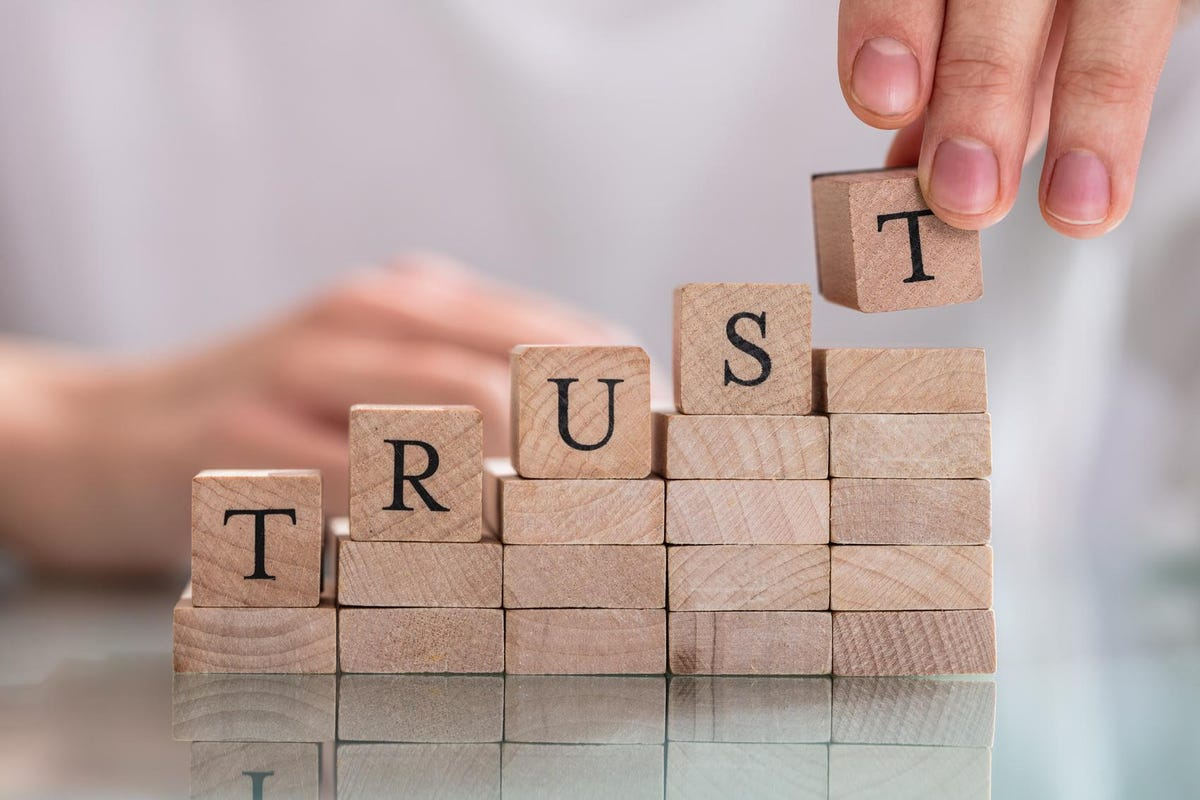Trust Social Trump - Connections And Confidence
Humanized Version
When we think about confidence, it's a big idea, really, that touches so many parts of our lives. It shows up in how we handle our money, the tools we pick for our everyday work, and even the platforms we choose to connect with others. It's about feeling sure that things will work out, or that someone has our best interests at heart, which is that kind of feeling we look for, isn't it? This idea of feeling sure, or having confidence, comes up a lot when we talk about financial matters, especially with things like checking your bank account or setting up your money for the future. It also plays a big part in the social places we gather online, like those big platforms where people share thoughts and news. And, you know, when a well-known person, someone like Donald Trump, gets involved with a social platform, it certainly brings this whole idea of confidence and public feeling right to the front.
This idea of feeling sure stretches out to lots of different areas, too it's almost. You see it with companies that help you manage your personal finances, like those offering ways to keep your assets safe or give advice on investing. Then there are the groups that help people with their emotional well-being, providing a place to talk things through and get support. And, of course, there are the big government services, like Social Security, which many people rely on for their future. All these different parts of life, in a way, ask us to place some kind of reliance, some kind of feeling of certainty, in them. It's about how much we believe in the systems and people around us.
So, what happens when these different threads—personal money matters, public services, and big social online spaces—all come together? We see this quite clearly when someone like Donald Trump, who has been a major figure in public life, gets deeply involved with a social networking site, a place where people share their opinions and news. His connection to Truth Social, for example, brings up all sorts of discussions about how we look at platforms like that, and what we expect from them, especially regarding how open and fair they are. It also brings up questions about personal wealth and how public figures manage their assets, particularly when those assets are tied to public-facing ventures. It's a rather interesting mix of personal dealings and public perception, isn't it?
Table of Contents
- Donald Trump - A Public Figure
- Personal Details and Life Events
- How Does Financial Trust Connect to Social Platforms?
- The Trump Social Media Connection
- What Does "Trust" Mean in Different Settings?
- Trust and Your Money Matters
- Is Truth Social a Platform You Can Trust?
- The Business Side of Trump Social
- What's the Big Picture on Trust and Public Figures?
Donald Trump - A Public Figure
Donald Trump has been a very public person for many years, first as a businessman and then, of course, as a political leader. His story is tied to big buildings, television shows, and then, a run for the highest office. People have watched his actions and listened to his words for a long time, and that creates a certain way people feel about him, a sense of how much they can count on what he says or does. This public life, you know, it means that a lot of what he does, even personal money moves, gets looked at very closely by many people. It's a situation where his personal dealings often become part of the larger public discussion, especially when they touch on things like media or politics, which they often do.
Personal Details and Life Events
Here are some details about Donald Trump:
| Full Name | Donald John Trump |
| Born | June 14, 1946 |
| Birthplace | Queens, New York City, U.S. |
| Education | Wharton School of the University of Pennsylvania |
| Occupations | Businessman, Television Personality, Politician |
| Known For | Real estate development, 45th U.S. President, Media ventures |
How Does Financial Trust Connect to Social Platforms?
It's interesting, isn't it, how our feelings of assurance about money matters can sometimes get mixed up with the way we look at social online spaces? Think about it: when you log into your bank account, like a Truist Bank account, you expect things to be safe and sound. You want to be able to check your money amounts, move cash around, or pay your bills without a worry. They even talk about getting practical advantages and automatic upgrades with certain accounts, which is meant to make you feel good about your choice. That feeling of safety, that sense of things being looked after, is what we hope for in our money dealings. So, when someone like Donald Trump moves his large shareholdings in a social media company, like Truth Social, into a kind of personal arrangement for his money, it makes people wonder about the connections between personal wealth, public figures, and the places where people talk online. It's a rather direct link, you know, between private money and public conversation.
The Trump Social Media Connection
The story of Donald Trump and his connection to Truth Social is quite a public one. We know he put all his shares, a very large number of them, in the company that runs Truth Social, into something called the Donald J. Trump Revocable Trust. This was described as a genuine present, a kind of giving away of those shares, which were worth a lot of money on paper at the time. This happened, apparently, before he might go back to the White House. It's a significant move, really, showing how a public figure's personal money arrangements can become very visible, especially when they involve a social platform that's meant for wide public discussion. This kind of arrangement, where shares are moved into a trust, is a way people manage their money and assets, but when it involves a well-known person and a platform for public talk, it certainly gets people thinking about the nature of that specific social connection and what it means for how things are run.
What Does "Trust" Mean in Different Settings?
The word "trust" itself, you know, means so many different things depending on where you hear it. It can be about a feeling of reliance, like when you know your bank has your back for a safe money experience, giving you notifications for approved dealings, ways to lock your card, and warnings about possible fraud. That's a very practical kind of reliance. Then there are groups, like Trust Therapeutics, which are made up of skilled helpers who work with young people and adults, giving them emotional and mental health support. That's about building a deep, personal kind of reliance, where people feel safe sharing their thoughts. It's a very different sort of connection, isn't it?
Trust and Your Money Matters
When it comes to money, the idea of "trust" takes on a very specific shape. We hear about places that have been helping individuals, families, and businesses with their money since the 1980s, offering advice that isn't leaning one way or another. They talk about ways to keep your money safe and ideas for growing your investments. This is about putting your financial future in someone else's hands, believing they will do right by you. Then there's the bigger picture, like the Social Security Administration, which has looked again at how long the funds it uses to help pay benefits might last. This is about a very large, public kind of reliance, where many people count on a system to be there for them in the long run. And, you know, when people talk about a "living trust," like Joseph Nienaber from TIAA mentioned, it's about a way to plan for your whole life, including what happens if you can't make decisions yourself, and how your assets are handled after you're gone. It's a very personal way to manage your financial confidence, ensuring things are looked after just as you want them to be, which is a big deal for many folks, really.
Is Truth Social a Platform You Can Trust?
So, when we talk about a social online space like Truth Social, the question of whether you can feel confident in it comes up rather quickly. The people behind it say it's a big place for everyone, a spot for open, honest talks around the world, without treating anyone differently based on their political views. That's a pretty big promise, isn't it? But then, there's also information out there, like what the Pew Research Center looked into, about how people actually use Truth Social as Donald Trump runs for president. These kinds of studies help us get a better sense of who is using the platform and how it fits into the larger online world. It's about seeing if what's promised matches up with what people actually experience on the platform, and that's a key part of how people build their sense of confidence in any social online spot, you know.
The Business Side of Trump Social
Looking at the business side of things, Trump Media & Technology Group, which is the company that owns Truth Social, had some financial challenges last year. Reports showed that the company lost money, and this made many people wonder about its path forward. When a business that runs a social online space isn't making money, it can make people think about its long-term stability and how it plans to keep going. This is separate from the content on the platform, but it's still part of the overall picture of how people feel about it. The way Donald Trump moved his shares, those many millions of them, into his revocable trust, was a very public action, and it certainly brought a lot of attention to the financial workings behind Truth Social. It's a direct connection between his personal money management and the business health of the social platform, which is something many people pay close attention to, as a matter of fact.
What's the Big Picture on Trust and Public Figures?
When we think about public figures, especially someone like Donald Trump, and how they communicate, it really brings home the idea of how important confidence is in public life. We've seen snippets of his conversations, like a phone call with President Vladimir Putin, where they talked about big world issues such as Ukraine, the Middle East, energy, and even the future of money. These kinds of public discussions, and how they're shared, say a lot about the nature of public discourse and how people react to it. There's also the feeling of how much people believe in institutions, like when Gallup found that only a small portion of people in the U.S. felt a strong sense of confidence in certain areas. It's a very broad topic, how confidence plays out in teamwork, getting people to work together, and dealing with constant shifts in things. This general sense of assurance, or lack thereof, can really shape how we view public figures, their ventures, and the overall social landscape around them, you know.
So, we've looked at how the idea of confidence shows up in our personal money dealings, like checking bank accounts or setting up plans for the future. We also saw how it connects to bigger systems, like Social Security, and even to personal support groups. Then, we talked about how a well-known person, Donald Trump, is linked to a social online space called Truth Social, and how his personal money moves, like putting his shares into a trust, tie into the business side of that platform. We thought about what "trust" means in all these different places and how the financial health of a social media company can affect how people feel about it. It's clear that the idea of feeling sure, or having confidence, is a big part of how we look at everything from our own money to the platforms we use to talk with others, and how we view public figures in all of that.

| Trust | Marcus Today

Trusted Root Certification Authorities Store in PKI Security

The Psychology of Trust: A Deep Dive into User Perceptions in Biometric